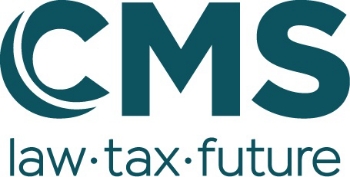When the Federal Cartel Office adopts a decision and imposes administrative fines on companies for infringements of competition law, it usually also publishes a corresponding press release. In an October 9 2014 decision, the Dusseldorf Court of Appeal defined more specifically the extent of the Federal Cartel Office's right to provide information on a specific case and the legal protection options of affected companies.(1)
On July 15 2014 the Federal Cartel Office published a press release stating that it had imposed fines on 21 companies and 33 individuals for illegal price fixing. The 21 companies were listed by name. The press release concluded with the statement that the fines imposed were not yet final and that appeals could be filed.
Two of the companies mentioned in the press release appealed the decision and requested the court to prohibit the Federal Cartel Office from describing their involvement in the cartel as an undisputed fact as long as the decision was not final. Following the oral hearing for the latter application, the companies withdrew their motions. However, in its decision regarding costs, the court still had to deal with the matter in substance and held that the companies' motions would not have succeeded on the merits, as the Federal Cartel Office had acted within the legal boundaries when it published the press release.
The court ruled that the Federal Cartel Office does not require special legal authorisation for press releases. However, it is bound by the general principles of proportionality and the prohibition of arbitrary decisions. Thus, the facts stated in its press releases must be accurate and true.
The court found that these conditions were met by the press release in question, as the Federal Cartel Office had reported only that it had imposed fines on the companies mentioned for illegal price fixing – which was clearly a correct statement. The fact that the fine decision could be challenged before a court did not alter the fact that fines had been imposed. Further, the Federal Cartel Office explicitly indicated in its press release that the decision was open to appeal.
The court also clarified that the Federal Cartel Office did not have to wait until fine proceedings had become final before publishing a press release. Otherwise, it would often be impossible for the office to inform consumers swiftly about proceedings. Further, the press release did not violate the principle of proportionality, as there is generally considerable public interest in price-fixing cases. In particular, the court held that end customers were substantially injured by the cartel at issue and would be able to claim damages from cartel members only if they were informed about the identity of the fined companies.
The court's statement regarding the legal boundaries of the Federal Cartel Office's public relations activities appears to be in line with Federal Administrative Court case law for other public authorities. Companies should be aware that once the authority has issued a decision, it will inform the press accordingly, even if the decision is not yet final and binding.
The decision is also notable with regard to actions for damages. The court assumed, without in-depth analysis, that consumers had suffered substantial injury as a result of the cartel. This is surprising as the cartel occurred at a manufacturing level and products were sold to consumers via independent retailers only that had first bought the products from the cartelists. Thus, even if the court were to assume that the cartel led to price increases for retailers, this would not automatically mean that retailers could pass this price increase on to end consumers. The Supreme Court had previously ruled that there was no presumption that cartel-related price increases were passed on to indirect customers. On the contrary, it held that the burden of proof in this regard rested with the indirect customers.
Article 14(2) of the EU Directive on Antitrust Damages Actions (2014/104/EC), which must be implemented by EU member states by December 27 2016, contains a rebuttable presumption that cartel overcharges are passed on. Following the implementation of the directive in Germany, Supreme Court case law will probably no longer be applicable and it may often be up to cartel members to prove that there was no pass on to indirect consumers.
For further information on this topic please contact Christoff Soltau or Martin Gerecke at CMS Hasche Sigle by telephone (+49 40 37 63 00) or email ([email protected] or [email protected]). The CMS Hasche Sigle website can be accessed at www.cms-hs.com.
This article was first published by the International Law Office, a premium online legal update service for major companies and law firms worldwide. Register for a free subscription.




